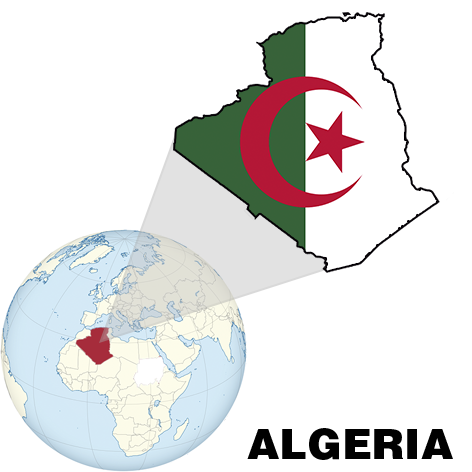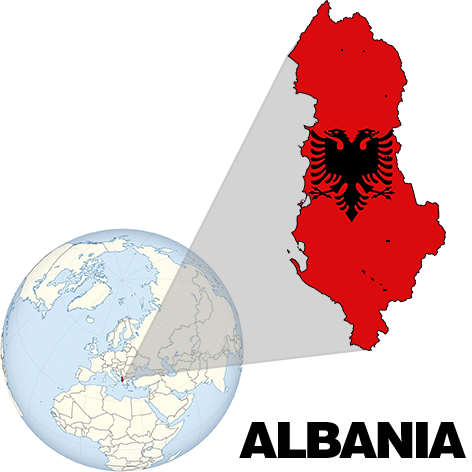Date: Friday, June 24, 2016
Participants (from 10 countries):
USA: Rick | Argentina: Johny | Algeria: Djamila, Soso | Poland: Mario | Iran: Behnam, Henieh, Noorola | Switzerland: George | Tunisia: Amin, Yesser | Azerbaijan: Salima | Pakistan: Adnan, Ayisha | Albania: Daylight
Host: Rick
Co-Host: Johny
Format: General Discussion
This was a free discussion held with DNM members from around the world. The topic was engaged in several ways and this is what the DNM community has to say about how we can help the poor:
Provide free education.
- Some people think that we need to provide educational opportunities to young people in order to find quality jobs and break the poverty cycle.. In Argentina for example, school and even university are for free but the quality of educational services for the students does not lead to the best employment opportunities when graduating.
- In India for example, public schools are not of a very high quality. and they receive insufficient funding therefore people need to send their children to private schools and pay high tuition fees in order to provide them with a good education.
- In Pakistan too, it’s the same case as India but things are getting better. The government is taking some actions to improve the public education environment.
- In addition to education, governments and the authorities need to create an environment where people feel like they have opportunities. We also need to provide equal opportunities and services to all the youth where they can exercise and make the best use of their knowledge.
Questions:
- We know that education is important, however, do you think if all people around the world were to have the same educational opportunities, that poverty wouldn’t exist anymore?
- In Africa for example, South Africa, they’ve significant natural resources but much of the population still lives in poverty. So, is the root cause of poverty tied to a lack of educational opportunities or something else?
Provide opportunities and services:
- Society needs to help people to get out of poverty but providing education is not enough. Education is an element that can help people do better in their lives.
- Education is a tool, but we can’t solve poverty problems with education alone. Economically speaking, if you look at the standard of living of people, many of them live under the standard of living of the country, so how would you address that issue?
- Talking about the example of African countries or others that have natural resources, knowing that these resources don't help the general population if the basis for a strong economy where all people have economic and labor opportunity does not exist. The overall responsibility of government towards it citizens is to leverage natural resources, which includes the human capital of its population, towards the benefit and prosperity of all its citizens. Being forward thinking, looking towards future industries and nurturing its citizens to participate and successfully compete in a global market are the keys to provide opportunities for its citizens.
Family planning:
- Education provides knowledge and awareness, which also lets people understand the choices they make, and the consequences of those choices. Data has shown that societies where both women and men gain equal access to education and employment opportunities, which includes the availability of family planning initiatives, poverty is significantly reduced in these countries or populations within a country. Society continues to evolve from a rural, agricultural labor based population towards an urban, service/technology based population. Gender equality in all regards, including the right to use family planning services, is also is a large factor in decreasing poverty as it provides both genders choices. Again, the cycle of poverty can be broken, but takes significant social and cultural change to do so in many cases.
- On a global level, we have to look at things, like family planning. As a parent I’m not going to have a child if I can’t take care of.
- Parents should be asked the question, what is the future they want for their children?
Identify the needs and build the work force:
- In order to help alleviate the hardships of those people living in poverty, we need to identify their needs. Whether, they need education, shelter, money…etc. So in order to address an issue, you need to identify what the problem is, and how these people became poor. What are the root cause behind systemic poverty that exists in many countries?
- As previously discussed, a healthy society, one in which poverty is diminished, is one that has strong governmental and societal policies and a strategy that identifies the root cause, develops infrastructure , political societal solutions, and ensures policy is enforced. This includes the forward looking view on future labor market opportunities, acknowledging and empowering the human capital of its population through education and labor force opportunities and provide a societal safety net for those that may fall through the cracks. Finally, there needs to be a constant feedback loop and engagement with the people, with society, to undergo course corrections as required and address issues/implement solutions.
Inspire people:
- There is a difference between a hand out and hand up. A Hand out and just blindly giving things to people will not help them to get out of this state of poverty. However, if you give them a Hand Up, provide them with the tools they can actually use to get out of this precarious situation, guide them and mentor them, this would actually help them. In fact, giving things to people doesn’t teach them anything, but empowering them and providing them with tools that they can use in their life, IS the right approach. We need to be careful not to build a welfare society where people rely on the government and don’t take actions to make their lives better.
- Philippines for example, are doing better economically recently, they don’t rely exclusively on natural resources, they have a large population that work in the service industry, both domestically and abroad, which is part of their national human capital. So when you don’t have the natural resources, you need to work on other domains.
- KSA: knowledge, skills and abilities. These are the three factors that work in favor of people. People don’t need to be educated or have a degree to be productive, to have a job and live a decent life.
- People are a resource and you need to invest in them to grow and build a solid economy. We need to think and project for the future. Identify the goals identify the needs, identify the resources we have and provide the environment and the services to work through this. Then you need to inspire people.
Thanks everyone for participating. Below are the links to listen to this discussion.
Listen Online:











